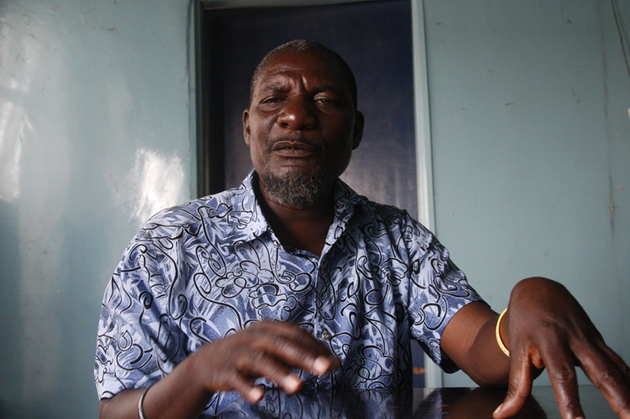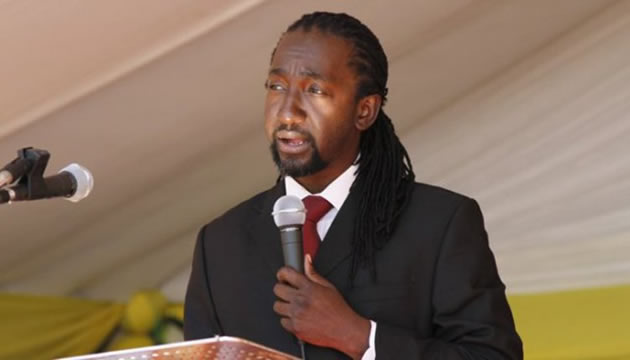Revenge porn law long overdue


The proliferation of sex tapes leaks is an indication that revenge porn is on the rise in this technology era and it spreads like a veld fire through WhatsApp platforms or Facebook regardless of it being undesirable
Lloyd Gumbo Mr Speaker Sir
Revenge porn is a serious social and legal problem that could affect the majority of citizens including adolescents and teenagers who may find the publication of their explicit images or videos too much to bear, which could force them to commit suicide or go wild feeling that they have nothing to lose.
Every time I bump into models Thabiso Phiri or Emily Kachote, what first comes into my mind is the fact that they had nude pictures that went public and rarely do I remember that they won the Miss World Zimbabwe pageant for 2014 and 2015 respectively.
The same thing happens with Tinopona Katsande whose profile as an actress and radio personality comes second to her sex tape that leaked a few years ago.
Google their names, the majority of pages are about their nude pictures and nothing on their achievements as beauty queens and successful actress and radio personality.
This means that everywhere they go, whether applying for a visa or employment, during background checks, their names have become synonymous with nudity, which could affect their chances of being given a fair chance at whatever they are applying for.
Mr Speaker Sir, due to technology, the issue of revenge pornography as a cybercrime has become one of the major problems facing the world but other countries have taken steps to nip it in the bud.
Revenge pornography has generally been defined as the act of posting or distributing nude pictures or videos without the consent of the other party with the intention of humiliating them, ruin their reputation or to blackmail them.
Due to technological advancement, cases of revenge pornography or sex tapes leaks have been on the rise not only in Zimbabwe but the world over.
It’s usually jilted lovers who are at the centre of revenge pornography or unauthorised people who may be in possession of such explicit material that they can use to blackmail their victims.
The world over, such perpetrators may blackmail victims demanding money or a sexual encounter with victims, the majority of whom are women.
Mr Speaker Sir, it is for that reason that the petition before Parliament by Katswe Sisterhood is timely in that it seeks to protect victims of revenge porn that has damaged their reputations and their future.
While the general argument in Zimbabwe is that there are sufficient pieces of legislation to protect victims of revenge porn in the form of the Censorship and Entertainment Control Act, Criminal Codification and Reform Act and the Postal and Telecommunication Act as well as the Cyber Crime Bill, history has shown that these have serious gaps in that they were not promulgated with revenge porn in mind.
For instance the ladies cited above did not get the protection they ought to have been given by the law.
The submissions by Tinopona Katsande before the Parliamentary Portfolio Committee on Justice, Legal and Parliamentary Affairs early this week that she did not get cooperation from law enforcement agents when she reported her jilted partner who distributed their sex-tape without her consent shows there is need to enact a new Act or at least amend existing legislation to specifically deal with revenge porn.
While pornography is outlawed in Zimbabwe, it is however important to accept the reality that consenting adult may be reckless to the extent of recording their intimacy for their own record, but it would be wrong for one of them to then use that to humiliate or blackmail the other partner.
I don’t understand why people should even take nude pictures or record themselves during intimacy, but recent cases of sex tapes leaking indicate that revenge porn is on the rise in this technology era and it spreads like a veld fire through WhatsApp platforms or Facebook regardless of it being undesirable.
Mr Speaker Sir, it is important to first acknowledge that revenge porn may be used to coerce, threaten, harass and abuse victims, so for that reason, it is important that victims are protected by the law because victims can lose their reputation or jobs.
Revenge porn is a serious social and legal problem that could affect the majority of citizens including adolescents and teenagers who may find the publication of their explicit images or videos too much to bear, which could force them to commit suicide or go wild feeling that they have nothing to lose.
This happens because oftentimes, people tend to blame victims of revenge porn instead of perpetrators whose actions must be condemned by all and legislation must prohibit such actions.
Given advances in technology, jilted lovers may go to the extent of superimposing faces of their ex-partners on a nude body and start distributing that material with the intention of humiliating them.
It is for that reason that the law must come in and protect everyone because there are Facebook pages in Zimbabwe that are dedicated to sharing pornography and perpetrators could go as far as creating fake images of people naked with the intention of embarrassing them.
The fact that other jurisdictions such as England, Wales, Germany and 16 states in the United States have passed laws against revenge porn goes to show how it is important to seriously consider this position.
South Africa is currently amending the Films and Publications law, with the new provision seeking to outlaw revenge porn.
If passed into law, perpetrators could face up to two years in jail or a prohibitive fine of up to R150 000.
This is the only way authorities can protect citizens who may be victims of this crime today or in future.
According to the proposed amendment to the Films and Publications Act, no person may post private photos or films on the internet and social media sites without the consent or with the intention of causing individual distress.
Mr Speaker Sir, the portfolio committee on Justice, Legal and Parliamentary Affairs must seriously consider proposals from Katswe Sisterhood of coming up with legislation to protect citizens because as things stand, everyone, including Catholic priests, could be victims of this cyber crime due to technology.
Feedback: [email protected]










Comments